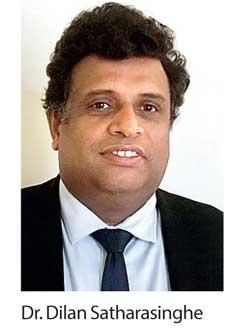07 Feb 2023 - {{hitsCtrl.values.hits}}
The recent move by the government to allow the importation of eggs was welcomed by the Sri Lanka Veterinary Association (SLVA). However, it raised concerns about the possibility of a bird flu outbreak in the island nation, if appropriate measures are not taken.
 The association cautioned that resorting to importing eggs from non-bird-flu-free nations, which have had bird flu outbreaks in the last six months, would have dire consequences, as the move would risk the avian influenza virus entering and spreading in the island, which is currently bird-flu-free.
The association cautioned that resorting to importing eggs from non-bird-flu-free nations, which have had bird flu outbreaks in the last six months, would have dire consequences, as the move would risk the avian influenza virus entering and spreading in the island, which is currently bird-flu-free.
“Sri Lanka is a country free from bird flu. Due to this move, there is a high chance of it spreading here. Sri Lanka is in the process of exploring its poultry exporting markets; spread of bird flu in the country will be a major factor in our export market contracting further,” said SLVA President Dr. Dilan Satharasinghe.
Sri Lanka’s bird-flu-free status has given the island a competitive edge in the global poultry export markets.
“This reputation can undoubtedly help drive Sri Lanka as a leading poultry exporter in the region and globally. Risking this opportunity will not only hamper the industry but also a much-needed avenue through which Sri Lanka can earn the much-needed foreign exchange,” he added.
In January, the Cabinet nod was given for the importation of eggs without restrictions, as the domestic prices of eggs increased sharply, due to the high cost of production. The price of an egg increased from about Rs.45 to about Rs.60, while some retailers sold eggs for as high as Rs.70.
A few weeks ago, the Consumer Affairs Authority issued an extraordinary gazette imposing a maximum retail price of Rs.44 for white eggs and Rs.46 for brown eggs, in an attempt to put a cap on the sharp rise in egg prices.
Although the government has paved the way for egg imports, the Department of Animal Production and Health (DAPH), having recognised the risks, is yet to approve the importation of eggs from non-bird-flu-free nations.
According to the SLVA, the department has advised the government to import eggs only from bird-flu-free nations such as Thailand, Malaysia, Australia, New Zealand, Brazil and the USA.
Under Sri Lanka’s Animal Disease Act, the director general of the DAPH holds the power to provide import licences to the importers of animal-origin products.
To address the ongoing egg shortage and issues of affordability, the SLVA shared three key recommendations.
For the short term, Sri Lanka should look at importing eggs from bird-flu-free nations, as per the DAPH regulations. Given that the eggs imported from the DAPH-recommended bird-flu-free nations might be costly, the government should intervene and ensure affordability to consumers through subsidies, the association said.
In the medium term, considering the existing shortage of commercial layer birds, the DAPH approved the importation of hatching eggs from the bird-flu-free nations last December. The SLVA said the government should sustain this policy measure, as the chicks produced by the imported hatching eggs would start to lay eggs in four to five months after hatching. This will contribute to meeting the local demand for eggs.
Further, as the cost and availability of poultry feed play a significant role in reducing the cost per egg, as poultry feed represents about 80 percent of the total production cost, in the long term, the government has to take measures to facilitate the cultivation of raw materials of poultry feed such as maize, rice and its by-products, stressed the SLVA.
“Based on the annual local requirement, the balance has to be imported regularly to avoid shortages in the market. Providing reasonable tax concessions on input material too will help sustain the availability of poultry feed,” the association said.
02 Nov 2024 2 hours ago
02 Nov 2024 3 hours ago
02 Nov 2024 8 hours ago
02 Nov 2024 02 Nov 2024
02 Nov 2024 02 Nov 2024